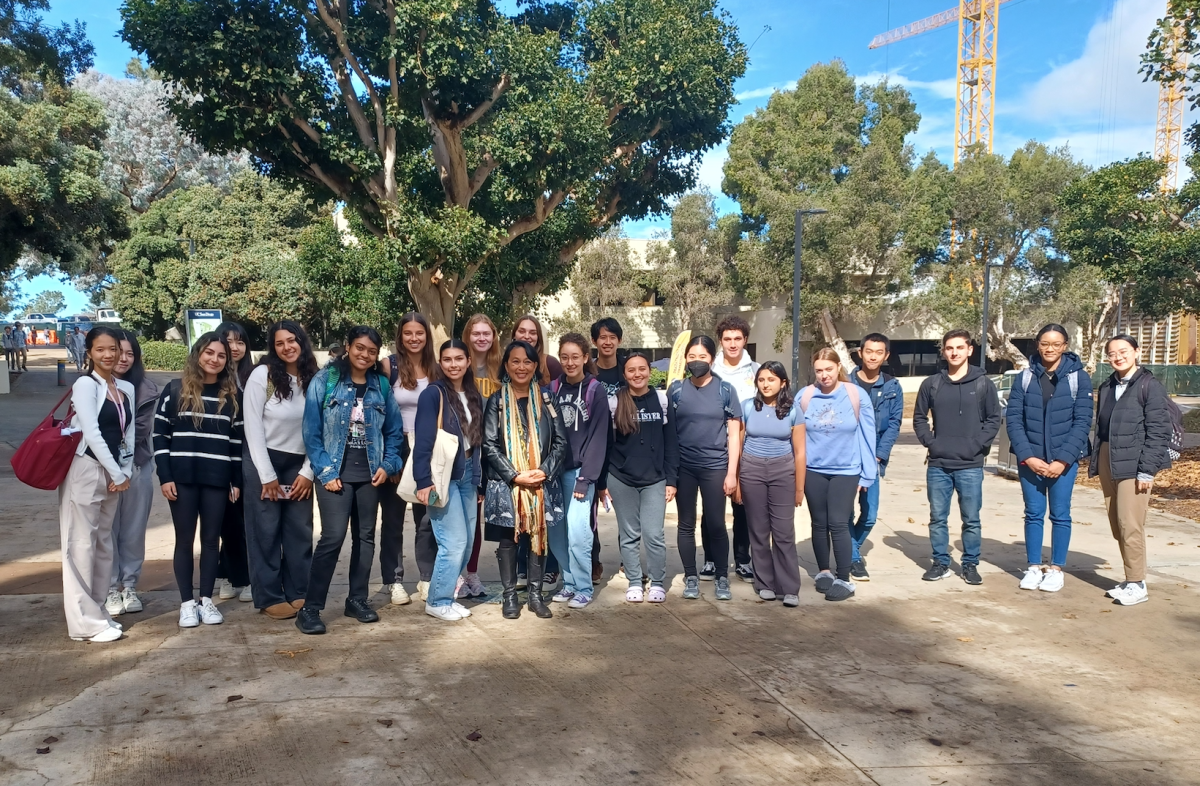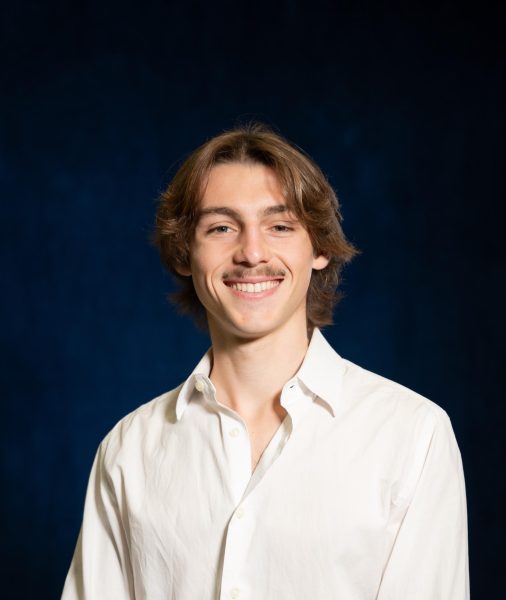She has taught guerilla combatants, her house has been burned down, and her friends have been killed. Despite all the highs and lows, UCSD professor of Southeast Asian, Global South, and environmental studies Jacqueline Siapno is a charismatic, passionate activist with a critical eye and a humble soul who consistently gives to others. She lives the ideal that politicians and philosophers preach.
As a university lecturer, Siapno’s life is very demanding. She wakes up early every morning to start teaching at 8 a.m., and spends hours reading, analyzing, and assembling resources for her students.
“Teaching can be really heartbreaking because you have to be very careful about the readings you choose. If you want social and environmental justice, you have to do a lot of preparation,” Siapno said.
The work is challenging, the stakes are high, and the pay is low. There’s no option for her but to teach purely from a desire to make the world a better place.
Siapno understands that a disproportionate focus on research at universities can impair education, but still embraces research for its advantages. As demonstrated through Siapno’s Ph.D. in environmental justice and conflicts over natural resources in Indonesia, her past research on East Timorese independence fighters, and her current research on critical ocean studies and environmental and climate justice in Southeast Asia, research has been a big part of her journey. Her goal is to balance research with education.
Outside of teaching and research, Siapno is also a mother. She said that motherhood has taught her more about herself and has made her a more caring teacher.
“Because I’m a mother, I can see [student life] on an everyday level: from my son’s perspective, and also my nephew and my niece,” Siapno said. “I have a sense of what they’re going through: the housing crisis, the merciless professors who give F’s without even asking what’s going on in people’s lives.”
Being a mother has given her a distinct sense of compassion: she learns all her students’ names, she is flexible to unexpected circumstances, and she encourages community by emphasizing group discussions.
For a large part of her life, Siapno was married to a man named Fernando de Araújo. Better known as Lasama, Fernando de Araújo served as the acting president of the democratic party in Timor Leste in 2008 a few years after its independence from Indonesia. He was deeply passionate about human rights and democratic ideals, and had formidable convictions and awareness about the injustices of colonialism, even as a student. However, this ideological power resulted in significant resistance from the government; he was “arrested for ‘subversion against the state’ after completing his first year at Udayana University in Bali, Indonesia, studying Literature,” Siapno wrote in an article for the Rappler commemorating Lasama’s life in 2015.
Through Lasama, Siapno became the First Lady in a country at a momentous time in its history and experienced the “post-colonial” transition which has been and is so complicated for many nations.
Being immersed in politics has largely shaped her understanding of more global issues, granting her profound insights into the world of bureaucracy, policy, and change. It taught her that, as she addresses nations, “you need sanctions. You need to start sanctioning and isolating the bullies, the strong-man politics, people who profit from conflict and war.” Change doesn’t happen in a vacuum; it happens with the help of certain people who make tangible steps toward a goal.
Siapno incorporates her understanding of global issues into the classroom. One of the central facets of her curriculum and core values is de-growth. The idea of de-growth is based on the understanding that ecological and human resources are limited on Earth, meaning exponential economic growth poses a mathematical paradox to us and our planet. If the earth is a bank, then we are the people of America taking subprime loans in the early 2000s: a catastrophe is brewing in the distance.
As a result, Siapno argues, we should shift our values in order to achieve a “circular society.” Biology is all about feedback loops; negative feedback loops keep the system constant by opposing changes, but positive feedback loops lead to extremes by augmenting changes. Before climate change, what kept our planet relatively stable for so long was a web of negative feedback loops. A circular society would be aimed at cultivating the negative feedback loops that maintain stability both in the ecosystem and the economy. Siapno’s perspective is a breath of fresh air in the cold corridors of a STEM-oriented university, where immediate results are often seen as the ultimate end.
Siapno has never become jaded by her circumstances; it is no mystery why her nickname is Joy. She makes passionate students appear victims of a lifelong career behind a cubicle. Her energy is youthful, and her message is modern. Almost instinctively, she quotes Paulo Freire’s Pedagogy of the Oppressed, saying that “students should be our teachers.”
What keeps her hopeful is the knowledge that disempowered and underprivileged members of society — like many of her students — have a surprisingly real potential to change the world. Something she learned from the guerilla combatants, one of whom was her former boss Dr. Lucas da Costa, with whom she founded the Universidade Internacional da Paz in East Timor, is that it’s important to be pragmatic and do what you can. Whereas academia fosters “bureaucracy,” guerilla warfare fosters “getting things done,” as Siapno sees it. The guerillas know firsthand how much individuals are capable of: it was their efforts which ensured East Timor’s independence by resisting Indonesia’s militia.
Always influenced by her time in office, the challenges she has overcome, and with the subtle flavor of guerilla, she repeats this mantra to her students: “Who are they? … we are they.”
At the moment, there is tension in the air for her and her students. The Israel-Palestine conflict has engulfed her as she feels the responsibility to push for change by maintaining a critical and supportive environment within the classroom. The empathy and pain are abundant in her voice:
“When I was a student, we were protesting about Apartheid. We protested against the colonial occupation of East Timor. Now students are protesting again to stop genocide in Gaza. And before that, students were protesting against the Vietnam War. I mean, these things end because students protest.”
During her political years in East Timor, she and her husband were targeted in an attack. Their safety and livelihoods were threatened when, as Siapno remarks, “a group of men had visited our house three times previously in the days beforehand, on two occasions issuing threats, and on the third smashing everything inside the house. On their final visit, they fired shots at our friends who had been guarding it for us, forcing them to flee, and then set our home alight.”
The threat still looms for Siapno. “My relationship with [Lasama] hasn’t ended — even after he died in 2015 — because there’s a very strong pressure in East Timor for me or my son to continue his legacy,” Siapno said, and that means she is still on the hot seat in many ways.
And while the hot seat has never taken its final toll on her, it unfortunately has for some of her friends and peers. Among her closest relationships was once a man named Jafar Siddiq Hamzah, an environmental rights lawyer and activist based in New York. In his own words, “I was an active human rights lawyer in Indonesia. My activism put me in direct opposition with the government of Indonesia and the military, which eventually forced me out of the country.” Around the turn of the century, Hamzah was tortured, killed, and buried near his hometown of Aceh. Sadly, many details were lost in the cloud of different interests surrounding his death, and the full truth will probably never be uncovered.
What makes Siapno’s story unique is that she has taken these moments as opportunities for growth. None of these trials and tribulations have discouraged her; instead, they have empowered her.
“My activism is sharing my experiences,” Siapno said.
While Siapno’s impact may be hard to quantify, it is certainly far-reaching. Siapno said that “it is only after 30 years of teaching that I receive letters from students who are leading movements in the world.” However, students who have taken her classes today say that it has already significantly changed their perspective on global issues.
John Muir College senior Allison Iannucci said that “[her] biggest realization was that environmental issues are human issues. At the moment, a lot of environmental studies seem to be about research rather than humanitarian aspects like how this relates to culture, history, and people.”
Revelle College student Magali Corona-Torres added that “Professor Joy fosters a sense of academic freedom that lifts the anxiety that usually accompanies participation in class discussion. The biggest lesson I took was that as a new generation of global citizens, we are the change makers.”
Katherine Trebeck, who is now the leader of the Wellbeing Economy Alliance, is perhaps the best example. Years after being taught by Siapno, Trebeck sent a letter of gratitude thanking her for her honest words. It was Siapno who dissuaded her from teaching kids in Africa and instead urged her to pursue a career of cultural change. While that may seem strange upon first sight, it makes sense: the shift allowed Trebeck to understand her own privileges, the ways in which historical intentions haven’t always equated to outcomes, and how selfless each person must be if they care to make a systematic difference.
In a TEDx talk last year, Trebeck said that “a well-being economy has to be built on the engagement of citizens around the world and ensuring they are rooted in their local communities … about regenerating and protecting that precious planet that we all depend upon … about fairness and delivering justice in all its dimensions … and about ensuring dignity to everyone, making sure we all have enough to get by and we have a sense of purpose and meaning in our existence.”
Trebeck’s words are reminiscent of the core message that Siapno has persistently repeated: environmental problems are synonymous with human problems, and the only solution for either is one which addresses both.
It is often hard to tell how one can use their skills and experiences in order to benefit the world, and oftentimes the answer is painful — it involves a personal sacrifice and a shift of values from inwards to outwards. For someone as perceptive, knowledgeable, and connected as Jacqueline Siapno, it might seem simple to teach. She knows, however, that teaching is her most noble pursuit. Wisdom is abundant in her mind and her words.
“It’s possible to have peace; it’s possible to not have violence,” she said. “All these people saying it’s impossible … that’s ridiculous; Apartheid ended in South Africa.”
To Jacqueline Siapno, “the classroom is the battlefield.”















